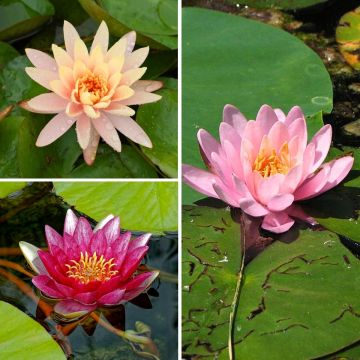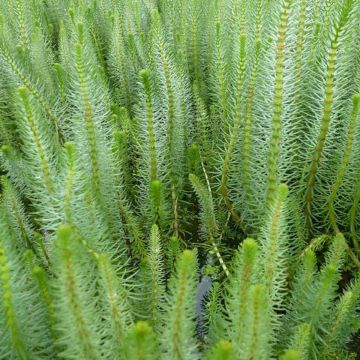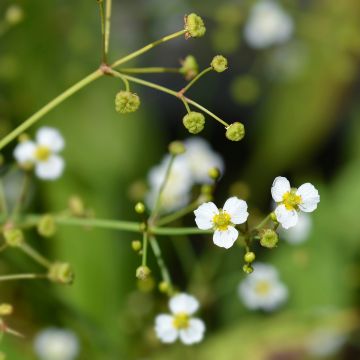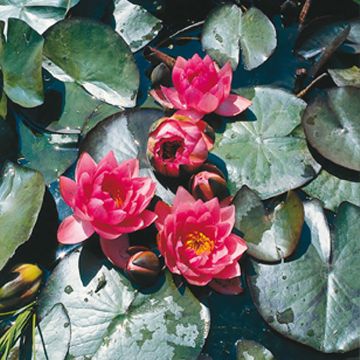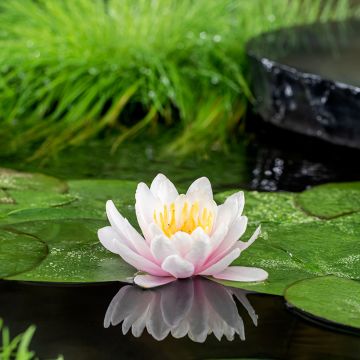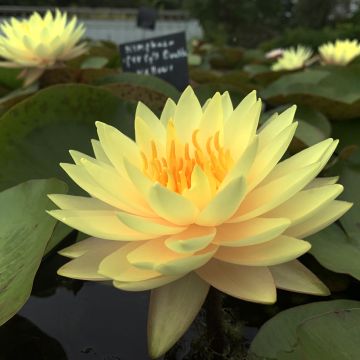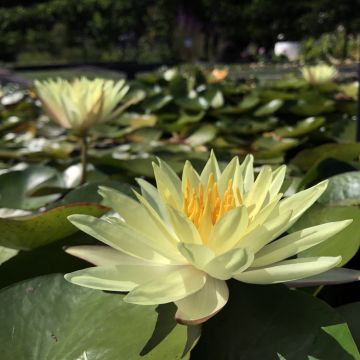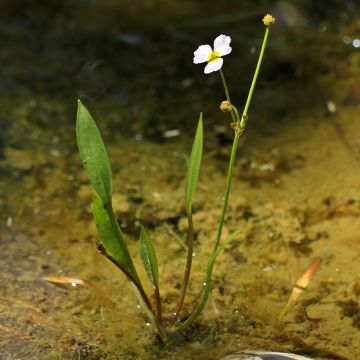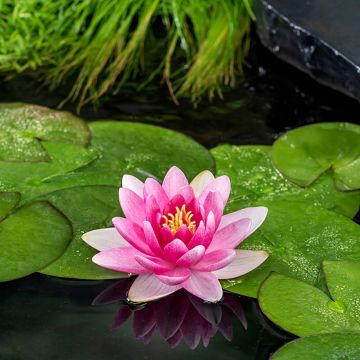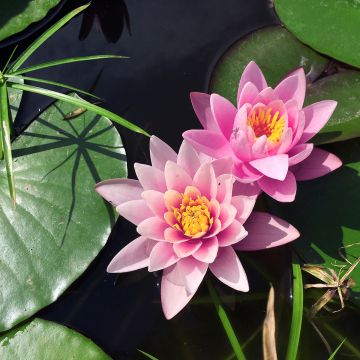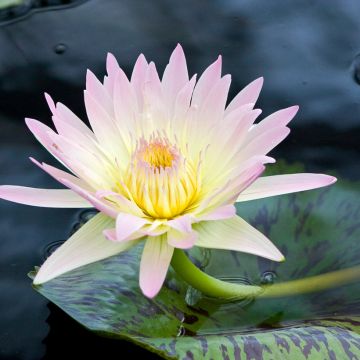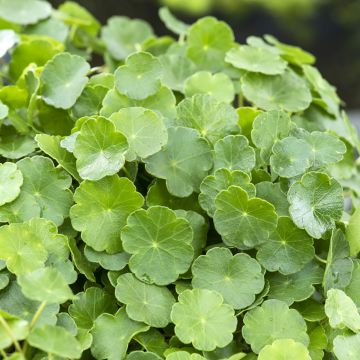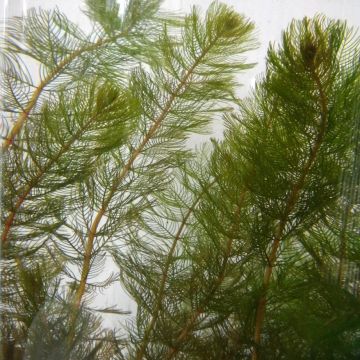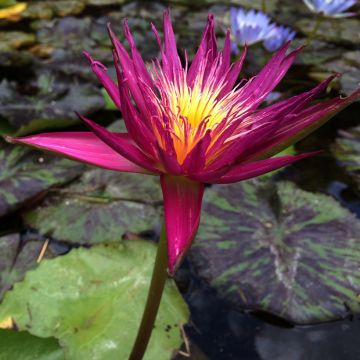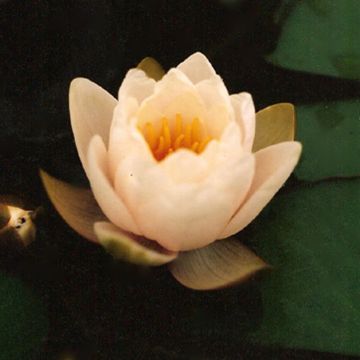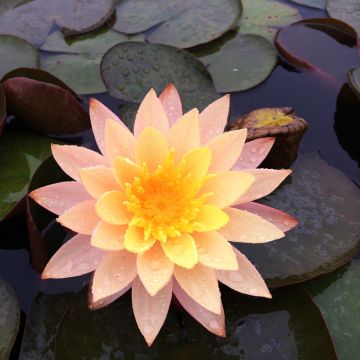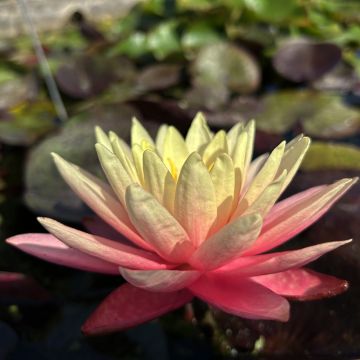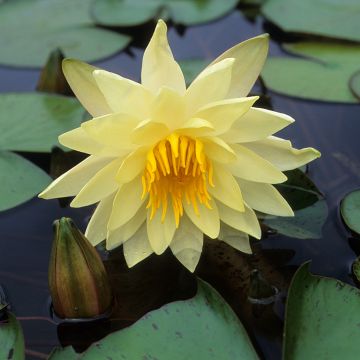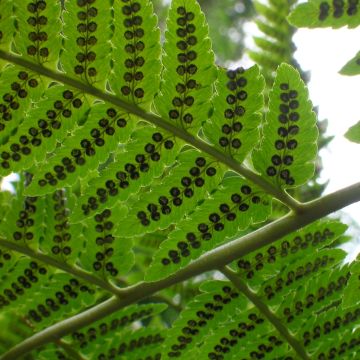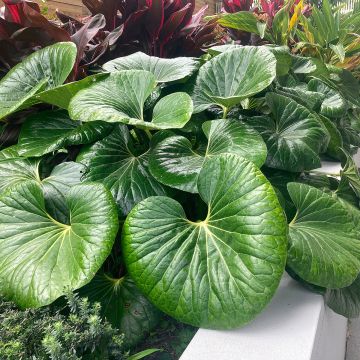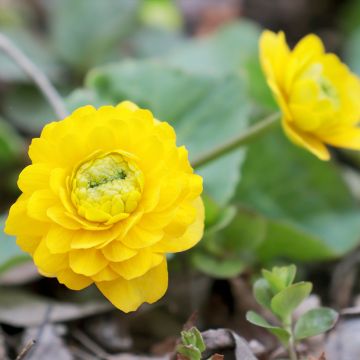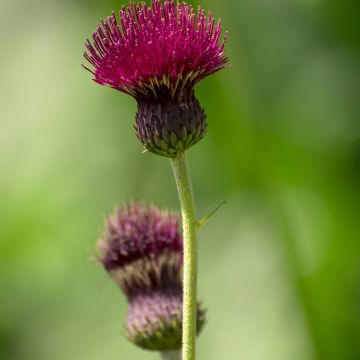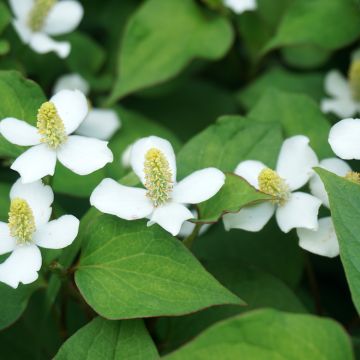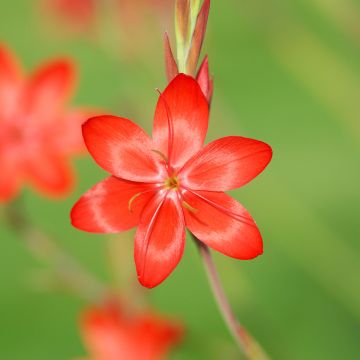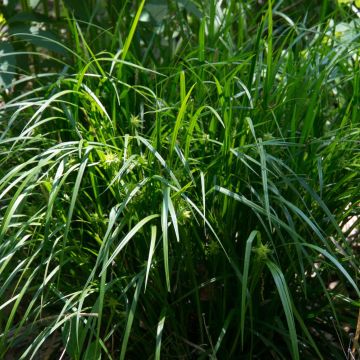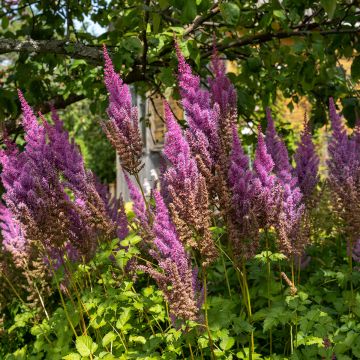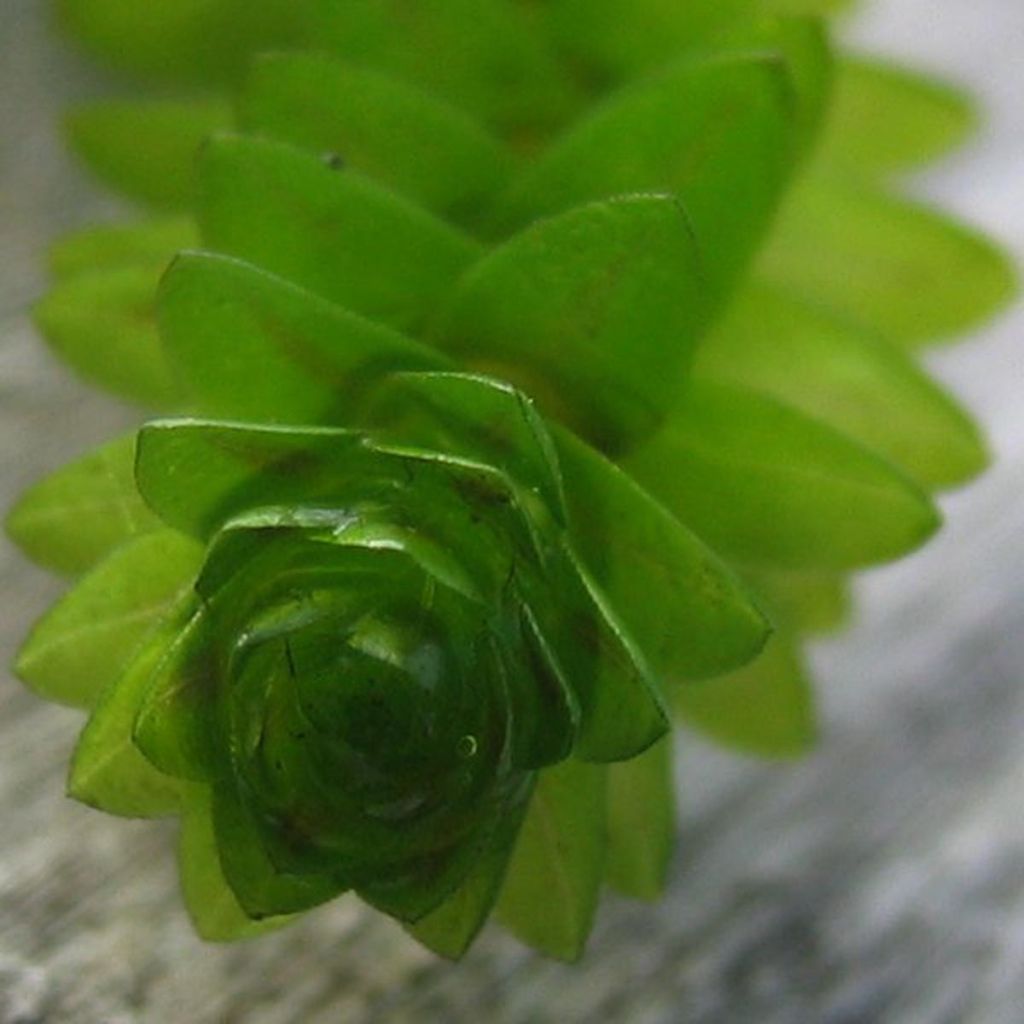

Elodea canadensis
Elodea canadensis
Elodea canadensis
Canadian waterweed, American waterweed, pondweed
Special offer!
Receive a €20 voucher for any order over €90 (excluding delivery costs, credit notes, and plastic-free options)!
1- Add your favorite plants to your cart.
2- Once you have reached €90, confirm your order (you can even choose the delivery date!).
3- As soon as your order is shipped, you will receive an email containing your voucher code, valid for 3 months (90 days).
Your voucher is unique and can only be used once, for any order with a minimum value of €20, excluding delivery costs.
Can be combined with other current offers, non-divisible and non-refundable.
Why not try an alternative variety in stock?
View all →This plant carries a 12 months recovery warranty
More information
We guarantee the quality of our plants for a full growing cycle, and will replace at our expense any plant that fails to recover under normal climatic and planting conditions.
Would this plant suit my garden?
Set up your Plantfit profile →
Description
Elodea canadensis, the Canadian waterweed or water pest, is a hardy, perennial aquatic plant of prime importance, reserved for ponds. It has long, slender stems completely submerged, except for the small white flowers that bloom on the water's surface, connected to the plant by a thin peduncle. The stems bear small translucent leaves, light green to dark green. The white flowering is insignificant. It is an invasive plant whose development should be monitored.
Canadian waterweed is a species of monocotyledonous aquatic plant in the hydrocharidaceae family. It is native to North America. It is commonly mentioned and used as an aquarium plant. Care should be taken when using it, as it can cause certain imbalances in nature. The introduction of this plant into rivers in Europe and other parts of the world, followed by the introduction of Nuttall's waterweed, sometimes causes fatal alkalosis in fish due to the uncontrolled proliferation of waterweeds. It has gone from intentional dissemination in aquariums to uncontrolled dissemination in natural areas.
Canadian waterweed is a dioecious species, meaning it has separate sexes. In Europe, only female plants exist. The slender, long stems of several meters are equipped with whorled leaves in groups of three. These leaves are small, sessile, thin (2 to 3 mm (1in) wide), light green to dark green, paler on their lower surface. They produce terminal buds that winter at the bottom of the water and produce new stems in spring. The flowers are insignificant.
Canadian waterweed is hardy, at least down to -15°C (5°F). It is necessary to test it to place it in a specific location in a pond. The brittle stems allow this plant to attach to other areas of the pond. It can also be planted in a basket or in the bottom of a natural pond. It should then be placed under 30 to 150 cm (12 to 59in) of water. Canadian waterweed tolerates almost all exposures but produces more oxygen with strong brightness. It is imperative to limit the development of these plants by regularly eliminating the excess. Prune regularly throughout the summer and heavily prune in autumn, to 30 cm (1 to 12in) from the base.
When the size of the pond allows, it is preferable to install two to three species of submerged plants to vary the foliage. Mix Canadian waterweed with crisp waterweed and dense waterweed, which are less invasive than the former. Waterweeds are an important element of lacustrine ecosystems in North America, providing habitat for many aquatic invertebrates and cover for young fish and amphibians. Aquatic fauna, particularly ducks, as well as beavers and muskrats, feed on them. Ceratophyllum, Crassula, Hippuris, Myriophyllum, and Stratiotes aloides can also be used to promote oxygenation and purification of the pond.
Elodea canadensis is used in cooking. The leaves are commonly used in biology to observe the simplicity of cellular organization. The term "elodea" comes from the Greek helôdês, "of the marshes".
Report an error about the product description
Flowering
Foliage
Plant habit
Botanical data
Elodea
canadensis
Hydrocharitaceae
Canadian waterweed, American waterweed, pondweed
North America
Other Aquatic perennials
View all →Planting and care
Planting period
Intended location
Care
This item has not been reviewed yet - be the first to leave a review about it.
Similar products
Haven't found what you were looking for?
Hardiness is the lowest winter temperature a plant can endure without suffering serious damage or even dying. However, hardiness is affected by location (a sheltered area, such as a patio), protection (winter cover) and soil type (hardiness is improved by well-drained soil).

Photo Sharing Terms & Conditions
In order to encourage gardeners to interact and share their experiences, Promesse de fleurs offers various media enabling content to be uploaded onto its Site - in particular via the ‘Photo sharing’ module.
The User agrees to refrain from:
- Posting any content that is illegal, prejudicial, insulting, racist, inciteful to hatred, revisionist, contrary to public decency, that infringes on privacy or on the privacy rights of third parties, in particular the publicity rights of persons and goods, intellectual property rights, or the right to privacy.
- Submitting content on behalf of a third party;
- Impersonate the identity of a third party and/or publish any personal information about a third party;
In general, the User undertakes to refrain from any unethical behaviour.
All Content (in particular text, comments, files, images, photos, videos, creative works, etc.), which may be subject to property or intellectual property rights, image or other private rights, shall remain the property of the User, subject to the limited rights granted by the terms of the licence granted by Promesse de fleurs as stated below. Users are at liberty to publish or not to publish such Content on the Site, notably via the ‘Photo Sharing’ facility, and accept that this Content shall be made public and freely accessible, notably on the Internet.
Users further acknowledge, undertake to have ,and guarantee that they hold all necessary rights and permissions to publish such material on the Site, in particular with regard to the legislation in force pertaining to any privacy, property, intellectual property, image, or contractual rights, or rights of any other nature. By publishing such Content on the Site, Users acknowledge accepting full liability as publishers of the Content within the meaning of the law, and grant Promesse de fleurs, free of charge, an inclusive, worldwide licence for the said Content for the entire duration of its publication, including all reproduction, representation, up/downloading, displaying, performing, transmission, and storage rights.
Users also grant permission for their name to be linked to the Content and accept that this link may not always be made available.
By engaging in posting material, Users consent to their Content becoming automatically accessible on the Internet, in particular on other sites and/or blogs and/or web pages of the Promesse de fleurs site, including in particular social pages and the Promesse de fleurs catalogue.
Users may secure the removal of entrusted content free of charge by issuing a simple request via our contact form.
The flowering period indicated on our website applies to countries and regions located in USDA zone 8 (France, the United Kingdom, Ireland, the Netherlands, etc.)
It will vary according to where you live:
- In zones 9 to 10 (Italy, Spain, Greece, etc.), flowering will occur about 2 to 4 weeks earlier.
- In zones 6 to 7 (Germany, Poland, Slovenia, and lower mountainous regions), flowering will be delayed by 2 to 3 weeks.
- In zone 5 (Central Europe, Scandinavia), blooming will be delayed by 3 to 5 weeks.
In temperate climates, pruning of spring-flowering shrubs (forsythia, spireas, etc.) should be done just after flowering.
Pruning of summer-flowering shrubs (Indian Lilac, Perovskia, etc.) can be done in winter or spring.
In cold regions as well as with frost-sensitive plants, avoid pruning too early when severe frosts may still occur.
The planting period indicated on our website applies to countries and regions located in USDA zone 8 (France, United Kingdom, Ireland, Netherlands).
It will vary according to where you live:
- In Mediterranean zones (Marseille, Madrid, Milan, etc.), autumn and winter are the best planting periods.
- In continental zones (Strasbourg, Munich, Vienna, etc.), delay planting by 2 to 3 weeks in spring and bring it forward by 2 to 4 weeks in autumn.
- In mountainous regions (the Alps, Pyrenees, Carpathians, etc.), it is best to plant in late spring (May-June) or late summer (August-September).
The harvesting period indicated on our website applies to countries and regions in USDA zone 8 (France, England, Ireland, the Netherlands).
In colder areas (Scandinavia, Poland, Austria...) fruit and vegetable harvests are likely to be delayed by 3-4 weeks.
In warmer areas (Italy, Spain, Greece, etc.), harvesting will probably take place earlier, depending on weather conditions.
The sowing periods indicated on our website apply to countries and regions within USDA Zone 8 (France, UK, Ireland, Netherlands).
In colder areas (Scandinavia, Poland, Austria...), delay any outdoor sowing by 3-4 weeks, or sow under glass.
In warmer climes (Italy, Spain, Greece, etc.), bring outdoor sowing forward by a few weeks.






























